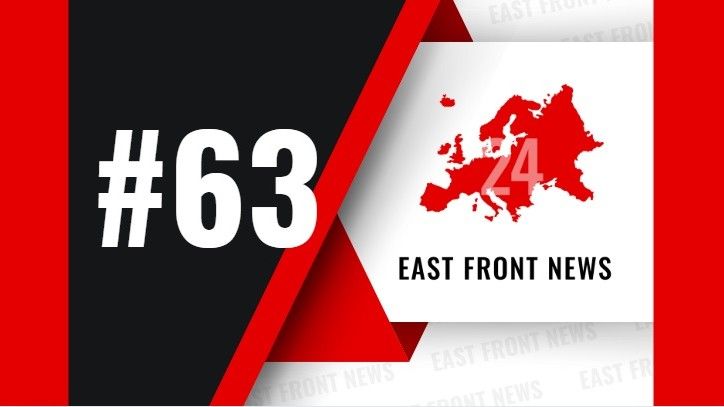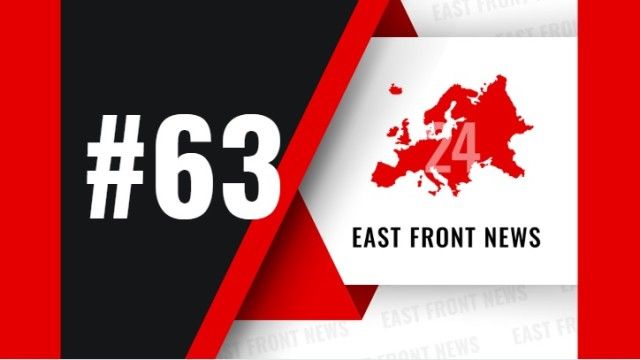
Photo. Defence24
Copy link
Send email
East Front News is a weekly newsletter summarizing the past week’s most important events concerning security and the situation in the Central and Eastern Europe region. It includes original opinions and comments, along with key news items significant from a Polish perspective. If you would like to receive this newsletter, please sign up by clicking HERE .
European Parliament opens permanent office in Kyiv
The European Parliament has opened a permanent office in Kyiv, co-located with the EU Delegation, in a move that signals both political commitment and practical support for Ukraine. The new presence enables daily engagement with the Verkhovna Rada, closer monitoring of reforms tied to EU membership and a visible reinforcement of Europe’s solidarity with Ukraine.
The decision follows Ukraine’s EU candidate status in 2022 and the renewed memorandum of understanding between both parliaments in 2023. By establishing a base in Kyiv, the European Parliament sends a strategic message that its support will not be weakened by the war, while for Ukraine it confirms that EU integration is a process backed on the ground, not a distant aspiration.
Author: Aleksander Olech
The EU is considering a “drone wall” on NATO’s eastern border
Will NATO’s eastern flank have a drone defense shield? Such a proposal was presented by Andrius Kubilius, European Union Commissioner for Defense and Space.
According to Reuters, EU Commissioner for Defense and Space Andrius Kubilius is expected to organize a meeting next week regarding the potential creation of a „drone wall” on NATO’s eastern flank. Defense chiefs from EU member states are set to participate in the talks. Ukraine would also be a co-creator of the Eastern Defense Shield.
Author: Michał Górski
Cyber24 DAY 2025: Poland’s cybersecurity forum gains international weight
The sixth edition of Cyber24 DAY will take place on 2 October 2025 at Warsaw’s PGE Narodowy Stadium, underlining the rapid growth of one of Poland’s leading events on cybersecurity, digitalisation and emerging technologies. Last year the conference drew more than 1,000 participants and over 100 panellists from government, the armed forces, academia and industry, with foreign delegations again expected this year. Deputy Prime Minister and Minister of Digital Affairs Krzysztof Gawkowski has described the event as Poland’s „Cybersecurity Day”, stressing its role in linking public institutions, business and society.
The 2025 agenda spans military modernisation, digitisation of the state and defence industry, artificial intelligence, quantum technologies, disinformation, child online safety and financial security. A record number of exhibitors, debates and business meetings are planned, with the scale of the venue – Poland’s national stadium – reflecting both the conference’s expansion and its rising international profile. Cyber24 DAY has become more than a conference: it is now the focal point for national and international debate on how to secure the digital future.
Author: Aleksander Olech
Polish–Chinese meeting shaped by divergent objectives but shared interests
Polish Foreign Affairs Minister Radosław Sikorski met his Chinese counterpart Wang Yi during the Poland–China Intergovernmental Committee, underscoring both tensions and overlaps in their agendas. Warsaw appealed to Beijing’s declared preference for stability by pointing to Russia’s destabilising actions, including recent drone violations, and also pressed its case for joining the G20 — a move China viewed favourably.
For Beijing, Poland’s economic weight and position at the EU’s eastern gateway enhance its value as a partner in Europe. China emphasised the Belt and Road Initiative, Eurasian transport corridors and the China–Europe Railway Express, while also criticising the United States as a trade rules violator and urging closer China–Europe alignment.
Author: Kacper Kremiec
Prime Minister of Estonia: Europe must speed up rearmament
Estonia’s Prime Minister Kristen Michal told „The Times” about his vision for Europe’s security and what countries on the Continent should do to more effectively resist Russian imperialism. The politician also addressed the issue of Poland and the violation of its airspace by Russia.
The politician, who in the summer of 2024 replaced Kaja Kallas as Estonia’s prime minister after she became head of EU diplomacy, spoke to Britain’s „The Times”. According to Kristen Michal, Europe is currently only at the beginning of the road to rebuilding its defence. In his view, European NATO countries must continue to pursue the restructuring and strengthening of their armed forces and must be prepared for further Russian sabotage attempts. „Russia is a threat to all rational states,” he said.
Author: Michał Górski
Poland–Ukraine: drone agreement as a pillar of new military cooperation
Polish Deputy Prime Minister and Defence Minister Władysław Kosiniak-Kamysz made an unannounced visit to Kyiv on 18 September, where he signed a defence agreement centred on unmanned systems. The deal goes beyond acquiring technology, focusing on operational skills, training and exchanges in the use of drones and counter-drone measures. It also covers cybersecurity, artificial intelligence, radar modernisation and electronic warfare, with plans for joint industrial investment and a greater role for Polish firms in Ukraine’s defence sector.
The accord reflects the growing centrality of drones in the Russia–Ukraine war, where they have become decisive tools for both offence and defence. For Poland, building capacity in this field strengthens NATO’s eastern flank while advancing its own armed forces« modernisation. Cooperation with Ukraine is therefore both practical — through battlefield knowledge transfer — and strategic, embedding Poland more firmly in the future of military technology.
Author: Justyna Smoleń
If you would like to receive this newsletter, please sign up by clicking HERE .
East Front News is a weekly newsletter and article on Defence24.com summarizing the past week’s most important events concerning security and the situation in the Central and Eastern Europe region. It includes original opinions and comments, along with key news items significant from a Polish perspective.
